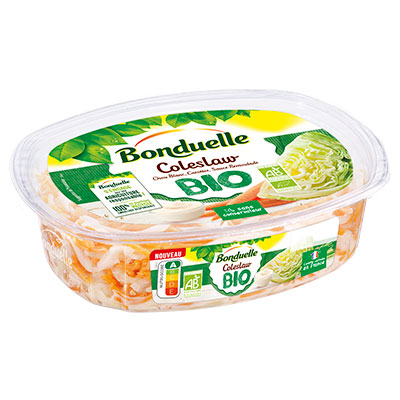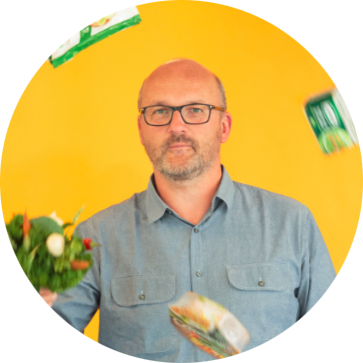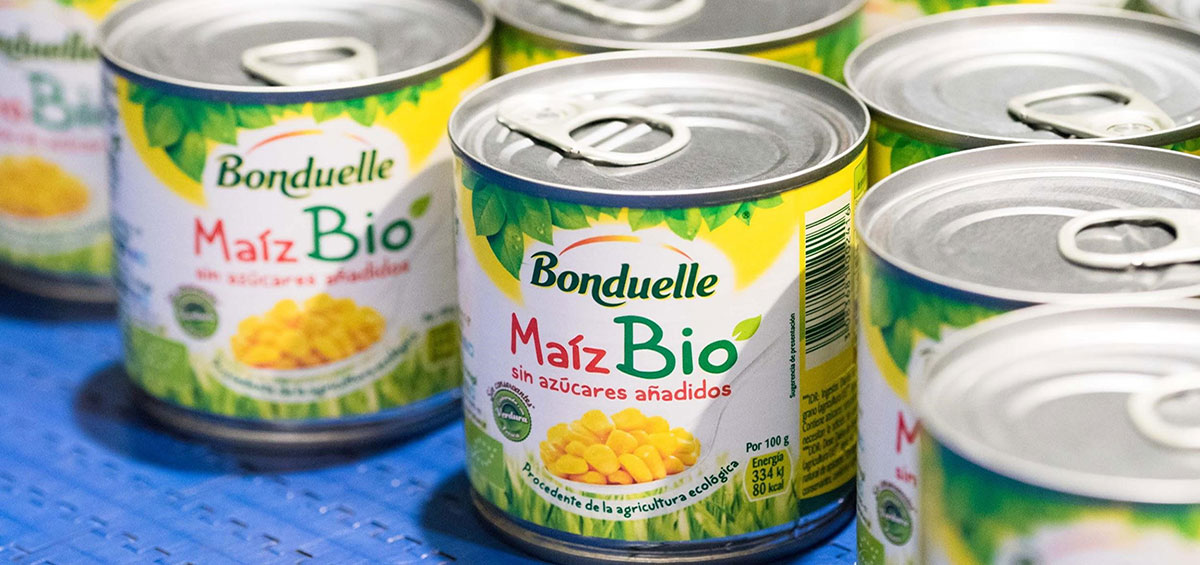Published at 2020, July 27th
The questioning of the ban on single-use plastics as a consequence of the health crisis has provoked strong reactions. For Bonduelle, now more than ever it is time to reinforce the commitments made on packaging, with a target of 100% designed to be recyclable or reusable packaging by 2025. This is a challenge that the group is taking up with great exacting standards and humility, as presented here by Jean-Christophe SIBILEAU, CEO of Bonduelle Europe Long Life.
In 2019, we revealed our CSR commitments for 2025 as a pact: the B! Pact. The objective was twofold: to reduce our environmental footprint and to encourage more responsible eating habits for all, through three pillars: Food, People and Planet. Each of these pillars brings together our commitments to “create a better future through plant-based food”.
Focus on the recyclability of packaging as a key issue in the Planet pillar.
Packaging: where are we at Bonduelle today?
The issue of packaging has been a concern at Bonduelle for many years. We want to be anchored in a circular economy, and for good reason: in 2018-2019, we will have purchased nearly 182,000 metric tons of packaging materials from our suppliers around the world.
We use several types of materials to package our vegetables:
● Recyclable materials account for 95% of all our packaging, from metal cans to glass and cardboard;
● The remaining 5% is made up of plastic materials that are often multilayered (this is the case for some of our frozen packaging) or materials for which recycling channels do not exist in a number of countries, such as in France where our salad bags are made of Polypropylene.
Aware of the environmental impact of packaging, for more than 10 years we have been implementing an action programme based on three areas of progress:
● Reducing the quantities of materials used for packaging to a minimum;
● Choose recycled and environmentally friendly materials;
● Achieve 100% packaging designed to be recyclable or reusable by 2025.
As a result of these commitments, we have achieved a saving of 1,500 tonnes of metal in Europe over three years by reducing the thickness of our cans between 2016 and 2019. In addition, our packaging in Europe now consists of 50% recycled materials. We also increased from 12% to 50% the recycled polyethylene terephthalate (PET) content in our ready-to-eat fresh ranges’ pack. Finally, the trays in the organic salad range are made from 100% recycled plastic and we have removed the lid to reduce the amount of plastic used.

Similarly, the geographical proximity between our packaging suppliers and our manufacturing plants is an important point for us as it is part of our responsible purchasing policy. The carbon impact is reduced thanks to savings in transport time.
Numerous challenges to achieve 100% packaging designed to be recyclable
The issue of recyclable packaging has always been an integral part of Bonduelle’s thinking, but it was in 2017 that an initial in-depth approach was developed. More recently, we have set a goal of 100% of our plastic packaging designed to be recyclable or reusable by 2025.
This target involves extensive research and a lot of time as there are several steps and many difficulties to overcome before we can define THE right solution. Indeed, it is a question of finding alternatives that do not involve “impact transfers”, i.e. recyclability must not alter the packaging’s conservation quality. For example, a recyclable material that could alter the shelf life of the product would go against Bonduelle’s policy against food waste.
In order to achieve this ambitious goal, our teams have gone through various stages:
● Diagnosis: the aim was to reference all the materials used in our packaging in order to know the nature of the plastics and resins used. This major work, carried out in 2018, made it possible to list the materials that were not recyclable due to their chemical nature.
● Recycling channels: as an international group, the issue of recycling channels quickly became a hindrance since they vary greatly from one country to another. The second step is therefore to find out about the specifics of each of these channels in all the countries in which we market products.
● The technological choice: in order to position ourselves on a probable solution, we have defined the technological scope to be activated to make our packaging recyclable. This involves listing all the solutions that can already be activated, in order to define their costs, potential drawbacks and all the non-mature solutions that our Research & Development teams are currently working on.
The technological stakes are high since we use highly technical plastics. This is why we are working with our suppliers to develop new recyclable packaging techniques to be marketed by 2025.
Interview with Laurent Dupont, R&D Group Packaging Referent at Bonduelle  Are there solutions other than changing packaging materials to meet your commitment? Changing our packaging materials is now a major way to reach our 2025 target of 100% packaging designed to be recyclable and/or reusable. But we need to go further: we need to develop recycling channels, which will make it possible to recycle more materials.Let’s take the example of polypropylene film, a material used in our salad packaging. In Germany, there are channels for recycling these films. Unfortunately, in France, this recycling channel does not exist. Two possibilities are therefore open to us: to modify polypropylene packaging towards another recyclable material in France, or to think with all the other players to define whether the polypropylene film resource would be sufficient to encourage the creation of a recycling channel for this material. Are the public authorities the only ones in a position to develop recycling channels? How are you acting to create these new recycling channels? |
European Plastics Pact: a major step towards the circular economy
In line with our commitments, we are proud to announce that the Bonduelle Group signed the European Plastics Pact on March 6. It unites companies, government departments and many other players in the global economy around the establishment of a circular economy for plastic packaging in Europe.
The aim of this Europe-wide pact is to strengthen innovation and cooperation. To this end, it is based on four objectives up to 2025 which the signatories are invited to respect:
- Design all plastic packaging and single-use plastic products placed on the market to be reusable where possible and in any case recyclable
- Reduce virgin plastic products and packaging by at least 20%, with half of this reduction coming from an absolute reduction in plastics
- Increase the collection, sorting and recycling capacity by at least 25 percentage points
- Incorporate at least 30% recycled plastic in new products and single-use packaging
We welcome Europe’s clear stance on plastics and have decided to commit ourselves alongside the other signatories of this pact, which is in line with our own targets. Beyond these shared objectives, we believe in the strength of the collective in this common fight: it is by working with all the players in the sector: manufacturers, packaging manufacturers and countries that the best solutions will emerge for a positive transformation in the use of packaging.
The objective of achieving 100% recyclable and/or reusable packaging by 2025 is a strong commitment that Bonduelle strengthens through the signing of the European Plastics Pact. Our involvement in the development of recycling channels is a reminder of the extent of the progress that needs to be made in a spirit of openness for an increasingly circular economy.

